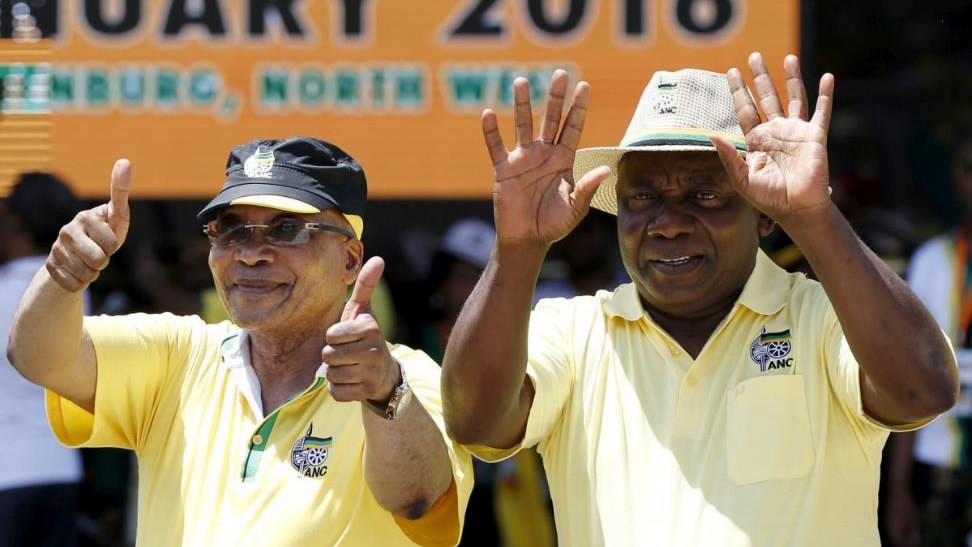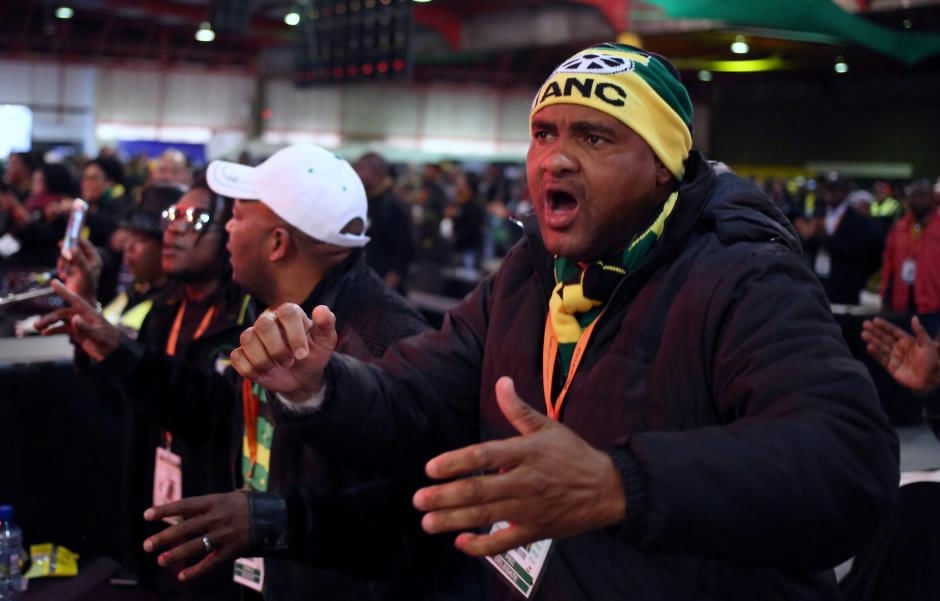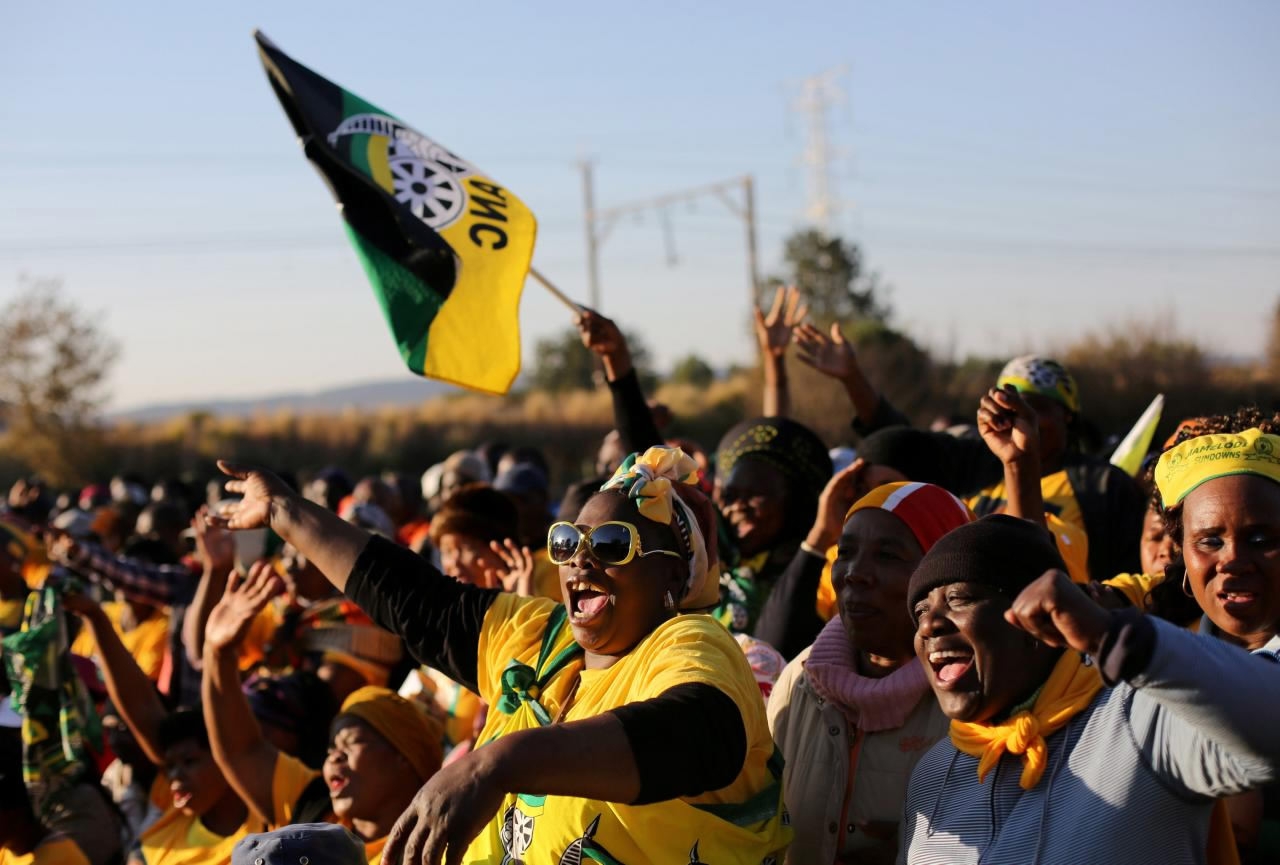
Politics
12:13, 18-Dec-2017
South Africa's ANC votes to elect successor for party leader Zuma
CGTN

Voting began on Monday for the successor to President Jacob Zuma as head of South Africa's African National Congress (ANC), the party that has ruled since the end of apartheid but faced scandals and corruption allegations.
The vote is perhaps the most pivotal moment for the ANC since it launched black-majority rule under Nelson Mandela's leadership 23 years ago. With scandal and graft accusations having tainted Zuma's presidency, the party is deeply divided and its image tarnished at home and abroad.
Whoever emerges at the helm of the African National Congress, a 105-year-old liberation movement that dominates Africa's most industrialized economy, is likely to become the country's next president after elections in 2019.
A total of 4,776 delegates began casting their ballots in the early hours of Monday, the ANC said, to select between Deputy President Cyril Ramaphosa and Zuma's preferred candidate, his ex-wife and former cabinet minister Nkosazana Dlamini-Zuma.
The two were the only candidates nominated for the ANC leadership at a conference in Johannesburg on Sunday night.

Delegates sing during the last day of the six-day meeting of the African National Congress 5th National Policy Conference at the Nasrec Expo Center in Soweto, South Africa, July 5, 2017. /Reuters Photo
Delegates sing during the last day of the six-day meeting of the African National Congress 5th National Policy Conference at the Nasrec Expo Center in Soweto, South Africa, July 5, 2017. /Reuters Photo
In a boost to Ramaphosa, courts ruled that officials from some provinces seen as supporting Dlamini-Zuma had been elected illegally and were barred from the conference.
The rand currency gained after that news on Friday, extending its gains to more than 2 percent on Sunday.
The currency is expected to be volatile on Monday.
"The rand is stronger on the likelihood of Cyril Ramaphosa being elected ANC head," said Brett Birkenstock, a director at Overberg Asset Management. "The markets favor Ramaphosa and expect him to improve the economy."
A winner had been expected to be announced on Sunday, but owing to long delays, the vote had been pushed back repeatedly.
It was not clear when the outcome would be announced.
Close race
On Saturday, Zuma announced plans to raise subsidies for tertiary colleges and universities, a move that analysts said was timed to appeal to the more populist members of the party allied to Dlamini-Zuma, the first woman to be nominated as a candidate for the ANC presidency.
Zuma has faced allegations of corruption since he became head of state in 2009 but has denied any wrongdoing.
Ramaphosa, a former trade union leader who later became a businessman and is now one of the richest people in South Africa, has vowed to fight corruption and revitalize the economy, a message that has gone down well with foreign investors.

African National Congress supporters chant slogans during ANC president Jacob Zuma's election campaign in Atteridgeville a township located to the west of Pretoria, South Africa, July 5, 2016. /Reuters Photo
African National Congress supporters chant slogans during ANC president Jacob Zuma's election campaign in Atteridgeville a township located to the west of Pretoria, South Africa, July 5, 2016. /Reuters Photo
Dlamini-Zuma pledged during her campaign to tackle the racial inequality that has persisted in South Africa since the end of white-minority rule.
Ramaphosa drew the majority of nominations from party branches scattered across the country. But the complexity of the leadership race means it is far from certain he will win when the votes are finally counted.
"The race is extremely close," said Susan Booysen, a political analyst at the University of Witwatersrand's School of Governance in Johannesburg. "Before today we said Dlamini-Zuma could emerge as a winner. Even if there is a strong lead in terms of branch nominations by the Ramaphosa camp, it's not clear-cut."
11676km
Source(s): Reuters

SITEMAP
Copyright © 2018 CGTN. Beijing ICP prepared NO.16065310-3
Copyright © 2018 CGTN. Beijing ICP prepared NO.16065310-3